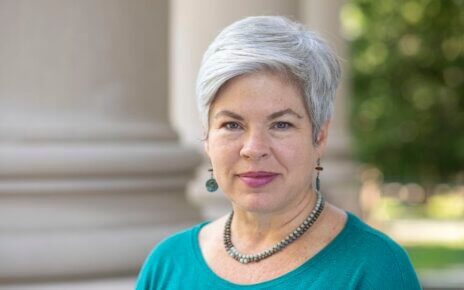The United States Supreme Court will take up same sex marriage on the docket for the next term. There will be two cases; one is based on California’s constitutional ban on same sex marriage through Proposition 8. Despite this, the public approved it via referendum. The other case will be based on a New York law that denies same sex couples federal benefits. This case will take center stage as the public attitude from same sex marriage has shifted.
The California case will decide whether California judges violated the federal Constitution when they voted to deny rights of same sex couples. A three judge panel for the Court of Appeals disagreed with the public, who believe same sex marriage should be allowed.
The Supreme Court will be dealing with a multitude of questions, the key one being: whether the Constitution requires states to allow same sex marriages. This case comes as nine states have legalized same sex marriage; Maryland, Washington and Maine passed it just this past election. Other states, including New Jersey, recognize domestic partnerships and civil unions, not same sex marriage.
The federal case based out of New York challenges the Defense of Marriage Act of 1996 passed by President Bill Clinton. Section three of the Defense of Marriage Act defines marriage as a union between one man and one woman for purposes of federal law. This comes forward after same sex couples attempt to file for federal programs but do not recognize their marriage even if the state in which they marry does.
This case comes at a time where same sex marriage is looked upon favorably by a majority of the public. According to politico.com, out of 1,000 likely voters, 40 percent of respondents said they support marriage equality. 30 percent said they supported civil unions and 24 percent said they didn’t think same-sex couples should be able to enter any type of legal union. President Barack Obama announced in May of 2012 that he supports same sex marriage.
Susan Pagano, sophomore political science major, said this was a long time coming. “I think that the fact that the Supreme Court has finally decided to rule on the issue just shows how important of a topic it has become. It’s true that it is a hot button social issue, but it is truly becoming an extremely important topic for countless individuals,” said Pagano.
According to the same politico.com poll, 63 percent of 18 to 29 year olds believe same sex couples deserve to marry.
Pagano agrees with this statement. “I believe that the younger generation’s approval of it is also proving how important it actually is. In the previous two elections, youth voters have shown up to the polls in huge numbers, and that’s important. People in Washington understand that this issue is important to a good portion of the voting electorate, more so now than it ever was. I think that it’s about time for the Supreme Court to finally offer its opinion on the matter, and I’m curious to see how they will rule,” said Pagano.
John Feldmann, an alumni from the University, said, “I think it can be either a good thing or a bad thing. If the Supreme Court comes out with a ruling against same-sex marriage, it will horribly cement our institutional structure against equality for a long time. However, if the Supreme Court rules in favor of same-sex marriage, it may either grant a federal right or at least push other states to follow suit.”
Jen Simes, senior political science major thinks that the idea of public opinion affecting the Supreme Court is unlikely. “I don’t think that the Supreme Court taking up the ruling is necessarily a reflection of public opinion but rather something that will influence future public opinion. There were still seventeen states that had laws on segregated schools when the United States Supreme Court ruled on Brown v. Board of Education, and sixteen states banning interracial marriage before they ruled on Loving v. Virginia. There are thirty states currently that ban same-sex marriage and a ruling on California would likely nullify or at least encourage the nullification of other states’ bans on it,” said Simes.
Dr. Christopher DeRosa, associate professor of history, believes that public opinion is leading to a large shift. “We have experienced since 2004 such momentum toward recognition of same-sex couples’ right to marry that I do not think the bigots’ rear guard action will last long. The notion that one group of citizens can deny to others a right they reserve for themselves is fundamentally un-American, and in the long run, doomed,” said DeRosa
Joanna Biano, sophomore criminal justice major, said, “Since marriage is a state rights issue, it should not be taken up by the Supreme Court. Also the federal government already defined marriage as the union between man and woman.”
Simes continues to say, “If the lawyers in defense of same-sex marriage can successfully argue that Prop 8 and the Defense of Marriage Act are unconstitutional because of sex-based discrimination, then I would be (and am) pretty confident that the USSC will vote in favor of reversing and remanding both laws.”
Students at the University believe it’s about time same sex couples received equal rights and benefits. Michael Hamilton, junior political science major, said, “We are in the twenty first century it shouldn’t be an issue it’s should be equal.”
Oscar Sanchez, Student Government Association President, is excited to see what the Supreme Court has to say on this issue. “As excited as I am for it, I’m just as nervous. The fight for same sex equality has been a long one and this is a monumental step that could make it or break it. All I can do is stay positive and hope that the government sees the big picture and moves forward with the rest of society,” said Sanchez.
Dr. Gregory Bordelon, lecturer of political science, said that this case was going to be heard sooner or later. “There would be little question that the Court would have to hear these cases, sooner or later. The wave of ballot measures in the states on same-sex marriage and the varying public support across the country virtually assured review,” said Bordelon.
Dylan Maynard, junior history major, said, “.With the recent shift in opinion, more states have been voting in favor of same-sex marriage. I believe the court would not want to intervene on the democratic process, but if struck down, one could find solace in the fact that the future justices and legislators will be more open-minded when it comes to marriage equality and the issue will be revisited and ultimately, legalized.”
Bordelon believes the impact could be seen either way. “If the Court strikes down DOMA and Prop 8 as unconstitutional, states that preclude marriage between people of the same sex will effectively be forestalled from enforcing their state laws and as same-sex married couples move between states, the ‘Full faith& credit’ argument will take hold and eventually any states laws denying marriage rights to same-sex couples will erode away.”
Bordelon continues, “If the state reverses the appellate court decisions and/or throws the cases out on standing grounds, I think you’ll continue to see a random progression through the states of ballot initiatives on the matter bolstered by Washington and Maine’s approval in November.”



